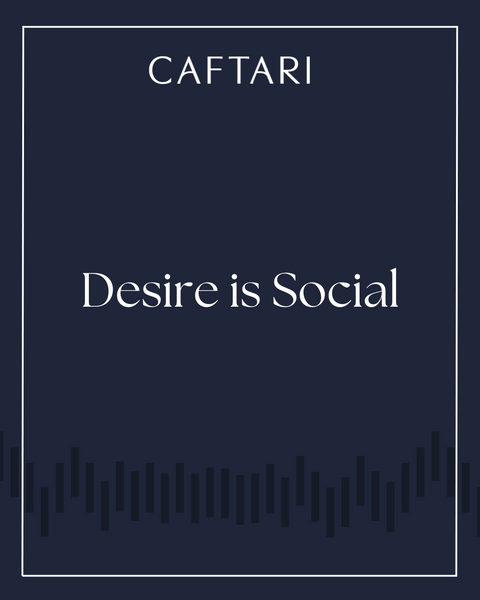Last week I posed the question: Should one cease desiring if the root cause of all suffering is desire? Or should the desire be to not have desires.
Few people question why we want the things we want. We assume we want things because we authentically want them. But desire, a uniquely human domain, is inherently social. We want what other people want, because we are gregarious creatures. We are constantly seeking external inspiration and validation as a result of collective thought. In essence, we rely on others to show us how to live.
“I started to meditate this new year because I want to be healthy.”
In reality we see people meditating and believe them when they tell us the benefits it gives them.
“I decided to run a marathon two years ago because I want to challenge and push myself.”
In reality we are impressed with other people when they run marathons and want to experience the same sense of satisfaction.
The assumption that our desires are our own is what the French social theorist René Girard calls “The Romantic Lie.”
This is because the value of objects (our desire) is not objective - it is subjective based on what other people want. Our perceived affinity of a particular object is distorted by our mimetic tendencies. Using this frame of work we can say the value of desire is “intersubjective” (the interchange of thoughts and feelings between two people). We assign value to things, and therefore desire them, based on what other people want.
There is no end to desires because there are endless objects. The billionaire tech founder does not start suddenly wanting less; they now desire expensive art, rare collectibles, and love, if they haven’t found it yet.
So to return back to the question posed in the beginning: is the solution to end suffering to cease desiring?
I don’t think so. The solution might just be to question what thoughts and actions led up to your desire and assess its authenticity.





Comments (0)
There are no comments for this article. Be the first one to leave a message!